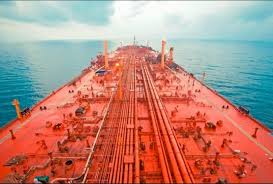GENEVA, Aug. 30 (YPA) – The United Nations accused on Tuesday the donor countries of not fulfilling pledges to save the Safer Reservoir anchored off the western coast of Yemen.
Russell Geekie, the Senior Communications Advisor to the Resident and Humanitarian Coordinator for Yemen, said in a news conference at the United Nations headquarters in Geneva, “there are only 10 out of 66 million dollars from the funding pledges that the UN promised to implement the first phase of the “Safer” rescue plan, confirming this amount was not enough to start the emergency operation of the tanker anchored off the western coast of Yemen.”
“That so far 17 countries and organizations have pledged to provide about $66 million out of the total $80 million cost of implementing the emergency phase of the UN plan, to rescue the Safer tanker; But “there is currently only $10 million in the bank.”
Geekie added, in a video call from Sanaa, that “the United Nations is asking the donors who have pledged funds to fulfill their pledges urgently, as the emergency operation cannot begin until the funds are received.”
“If Safer remains in this state, it is possible for oil to leak or to explode at any time; And “if action is not taken, the only question will be when the catastrophe will occur, which will be the fifth worst such accident in human history,” and will have catastrophic consequences for the environment and for the tens of thousands of people who live off fishing in the Red Sea,” he warned.
He stressed that starting the emergency phase of the UN plan, which is to safely transfer oil from “Safer” to another ship needs at least 14 million US dollars now. “A relatively modest amount is needed to prevent exorbitant cleaning costs later,” as the cleanup is likely to cost $20 billion.
The oil tanker “Safer” was built in 1976, and it has not undergone any maintenance since the beginning of the war in Yemen, carrying out about 1.1 million barrels of oil, which is at risk of leaking from it, or of the tanker exploding completely, and thus spilling its cargo of oil in the Red Sea.
AA


